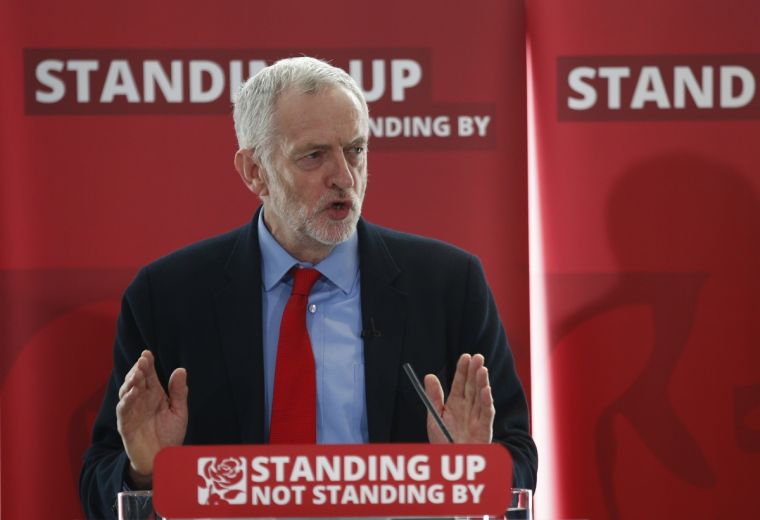3 Things The Labour Party Can Learn From The Church About Unity

So, the Labour Party has a new leader. And he's the same as the last one. Jeremy Corbyn vanquished the best challenger his opponents could muster and he remains the leader of Her Majesty's Opposition.
Disgruntled Labour Party MPs, staff and members now have a choice before them. Do they leave the party which has confirmed its support of an agenda and style they disagree with? Or do they stick it out and pledge their loyalty to the party even though they disagree with its leader?
I suspect we'll hear publicly about some of these individual decisions over the next few days and weeks.
The Labour Party has always been a coalition of different interests, factions and groups during more than a century of existence. Another institution which has faced division and difference is the Church. Here are three lessons on the importance of unity and truth from the 2,000 years in which Christians have tried, and sometimes succeeded, to be united across their difference...
1) If you want your message to hit home, unity is essential
In his prayer on the night before the crucifixion, Jesus asked God to grant "that they [Christians] will all be one, just as you and I are one – as you are in me, Father, and I am in you. And may they be in us so that the world will believe you sent me." (John 17:21)
In this prayer we can see that unity isn't just an optional extra, or a nice thing to have if it's possible. Instead Jesus reveals that unity is vital to transmitting a message. He implies that people will only believe the Christian message if the disciples are "one".
This message is surely applicable to political parties too. The recent dreadful polling for Labour hasn't just been about the division within the Parliamentary party, but it has obviously contributed. To gain the support of the public, it isn't essential that a political party agrees on every single issue, but it must have a core message in common and present a united front.
2) Disagreement is OK, provided it's dealt with
Only a few years after Jesus' plea for unity we read about a confrontation taking place between two of the main figures in the early church. In Galatians 2, Paul writes: "When Cephas [Peter] came to Antioch, I opposed him to his face, because he stood self-condemned".
The issue here was hypocrisy. Paul challenged Peter over his behaviour because the matter was important and needed to be addressed. Importantly though, we don't hear of an ongoing feud between the two. The issue is dealt with and they move on.
Some of the divisions in Labour won't be solved by a brief confrontation (in fact, after a summer of confrontations a resolution seems no closer). Yet Labour can learn a lesson here – some things are worth falling out about, but after a decision has been made it's important to move onward and refocus on the areas of agreement.
3) You can't please all of the people all the time... But it's important to try
The first schism in the Church started in the year 451 AD (or 431, depending on which split you're referring to...). Then in the 11th Century, the Eastern and Western parts of the Church split in two. In the 16th Century, the Reformation saw the fracturing of the Western Church. None of these major divides have ever been fully healed in spite of many encouraging signs in the last few decades.
To a certain extent, any institution which contains a couple of billion fallible humans is always going to have an element of diversity or even difference. This can be an asset. However, full blown disagreement and disunity is to the detriment of the gospel.
In the same way, a political party is always likely to have different factions. That diversity can be a strength – helping to appeal to different parts of the electorate – but it can also come at a price.
The question for both the Church and a political party is whether these are issues worth splitting over. Can a group of Christians maintain unity while they have different opinions on the nature of Jesus or justification? Can a group of Labour MPs and members stick together while they have different opinions on Trident or foreign policy? I have a feeling we're about to find out... On the latter at least, if not the former.
Follow Andy Walton on Twitter @waltonandy











